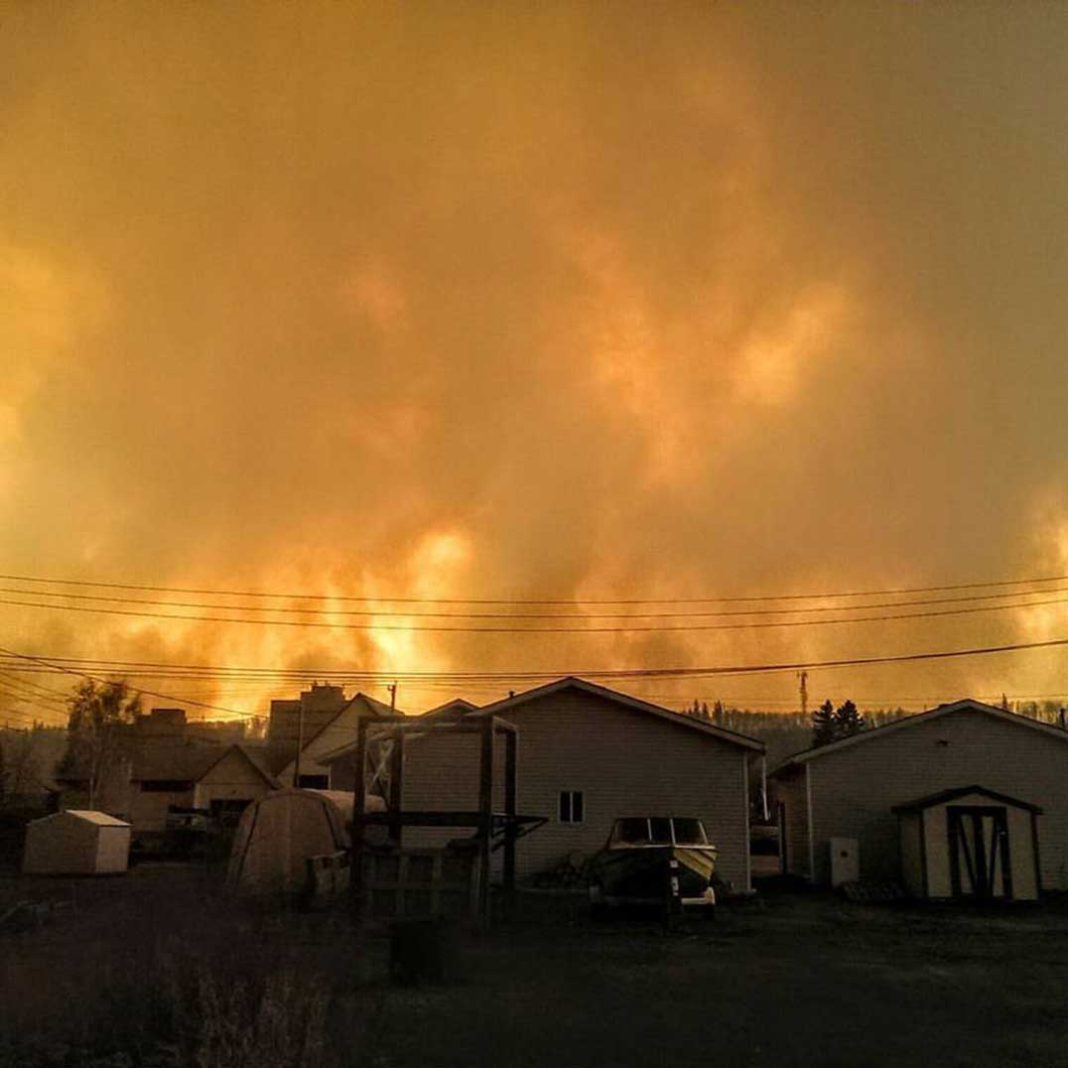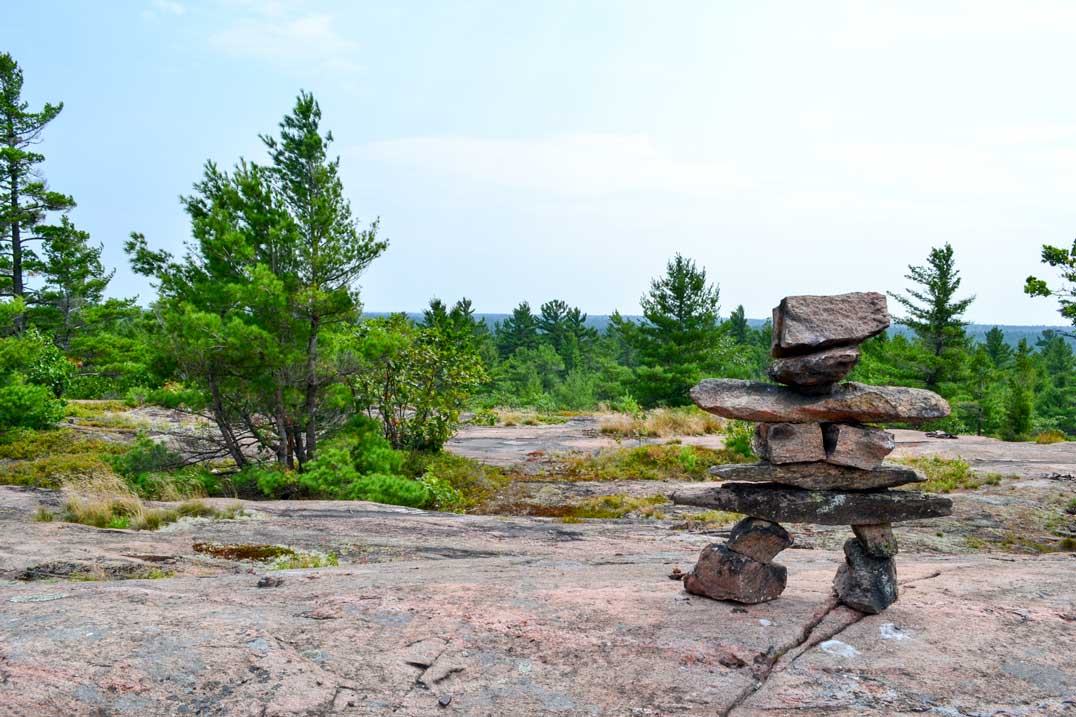FORT MCMURRAY—The small Northern Alberta town of Fort McMurray has been built on a field of dreams, quite literally, as people from across the country and the world have settled in the oil sands supply post looking to create a better life for themselves and their families. This past week some of those dreams have been tumbled as a massive wildfire ripped through the town, forcing the evacuation of a population of 80,000 and culminating in the destruction of 20 percent of the town.
Melissa Dawn Hiller travelled to the remote Northern Alberta outpost looking for work and an income that would help her keep her Manitoulin property above water and hoping to reset a life that had seen a tremendous amount of trauma in recent years, including the death of her baby.
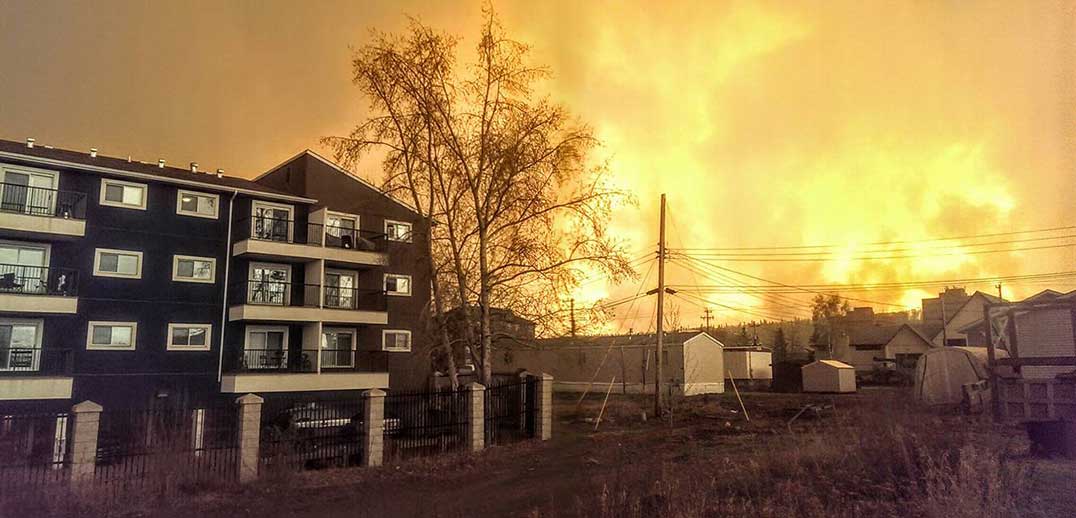
“It has been a life altering experience,” said Ms. Hiller, contacted at the motel south of Fort McMurray to which she had fled following the order to evacuate the community.
Ms. Hiller’s life had recently taken a surprisingly direct upward path. Not only had she secured employment, she also found her husband Jacob through a disastrous series of events that threatened at the time to extend her terrible fortunes straight into the abyss. In retrospect, as unsettling as recent events have proven to be, life in the west is still looking comparatively good.
Ms. Hiller (then Golder) arrived in the fabled west with a handful of personal effects (including her grandmother’s wedding ring) that represented just about everything she had in the world.
Not knowing anyone and being very short of resources, Ms. Hiller found herself having to avail herself of the shelter system as she tried to get herself established. Things seemed to be on an upswing when she met a woman at the shelter who offered her a place to stay in the apartment she had just found.
She later discovered to her dismay that the woman, who seemed at the time to be a godsend, turned out to have severe mental health issues, was known to the police, and who not only locked her out of the apartment but refused to return any of Ms. Hiller’s possessions.
It was in the ensuing pit of despair that she found her Mr. Right, or perhaps Prince Charming, as he rescued her from her predicament with, as it turned out, no ulterior motives.
A short time later they were married and settled into an apartment in Fort McMurray, living frugally as they attempted to save every spare penny that came their way to build a home.
It was sitting on the balcony of their apartment that the first inklings of what was to come appeared in the form of helicopters landing in the nearby river to collect water to fight a fire.
“We were watching the helicopters come in and pick up water, it was kind of entertaining, I even took some small videos with my phone,” recalled Ms. Hiller. “There was a small fire quite a ways off in the distance and there was this huge water bomber going overhead.” That fire didn’t seem so threatening, and the next day her husband headed off to work at a northern camp. “He works 12 days on, two days off,” said Ms. Hiller. “Reports were saying that they had the fire under control.”
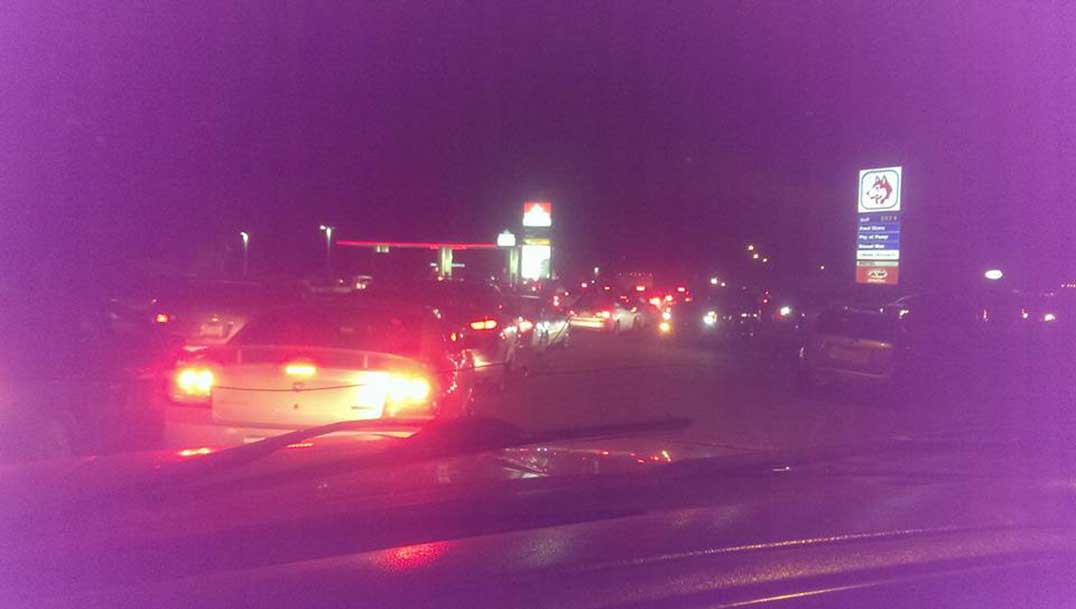
“But while I was watching that Mickey Mouse fire from my balcony, there was a huge blaze going on on the other side of the building,” she said. “The next day I said ‘oh my God,’ the whole town was full of smoke,” she said.
Ms. Hiller described Fort McMurray as a long thin town. “People don’t really understand how Fort Mac is laid out,” she said. “The whole thing isn’t as wide across as Little Current. It just follows the road in this long strip.”
The following day, when she stepped outside following news that they were evacuating people from “just up the hill,” she found that ash was falling all around her. “I thought ‘holy shit,’ this is happening at the end of the street,” she said. The fire was mere blocks away at that point. “If that fire came forward, it would be right in the middle of the city. I decided that it was time to get out of the city.”
But that proved easier said than done.
“I thought, ‘this is not good’,” she recalled. “There were alarms going off in my building, police were going door to door, there were alarms and blinking lights everywhere. I said ‘I have to go, I have to go now’.” Water was literally dropping on her head, she said, as spray from water bombers attacking the nearby fires was blown over her building.
Her truck, no longer in the most reliable prime of its life, had barely half a tank of gasoline on board, but Ms. Hiller packed up their dog Luna and began to edge out of town along with several thousand other evacuees.
“I knew I wouldn’t get far with what I had in the tank,” she said. Stopping to fill up at the next available gas station presented a new challenge. “I waiting two-and-a-half hours in line for gas,” she said. “It was chaos.”
Calamity and panic can bring out both the best and the worst in people. “There were people budding into line, people walking up to the head of the line with gas cans in their hands, I mean really,” she said. “Here we were waiting in line and these people were cheating.”
Just a few moments after she pulled out from the station, a sign went up announcing they were out of gas. The same sign graced a number of other establishments along the highway as well.
The journey along the packed roadways was a major ordeal. “It took 14 hours to drive what normally would have taken four hours,” she said. Once she had reached the town of Morinville, about 10 minutes north of Edmonton, after two hours of searching, Ms. Hiller was finally able to find a motel that would allow her pet to stay with her.
“It really eats into our savings,” she said. “But what can you do?”
Her husband has a trailer on a piece of property not far away, but the couple had winterized it, shutting down the electricity and putting anti-freeze in the pipes. “I’m not the helpless type,” she asserted, “but dealing with that is beyond me.”
Meanwhile, Mr. Hiller was frantically trying to get out of the lodge where he was staying to travel south to meet her, to no avail. He and a friend set out from the work camp to try and reach their families. The situation in the camp was also less than ideal, with food supplies running low and tempers running high.
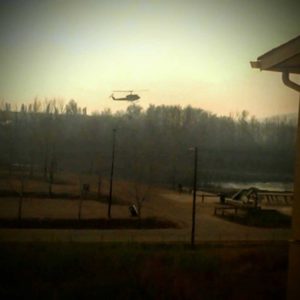
“They arrived at the gates to the camp and there were two guards there who told them they could not leave,” she said. “The fire was on both sides of the road heading south.”
Ms. Hiller said that she was angry that the bosses at the camp were able to arrange flights out of danger, but the workers were expected to stay behind.
“The forest up here isn’t like back home,” she said. “They don’t have deciduous trees, they are all these bottleneck pines, little skinny things.” Anyone who has seen a pine branch laid on a campfire at night has a good idea how volatile they can be when touched by flame.
“I am okay, I am trying to stay calm,” said Ms. Hiller, “but my eyes are red from crying. The stress has been unbelievable.” She noted that the town “has done an amazing job, keeping everyone up to date with regular updates.”
“It’s so frustrating to be paying rent on a place you can’t stay, and yet having to pay for another place to live,” she said.
By Monday, Mr. Hiller had been able to make his way south to meet up with his wife and pet, and the three travellers set out for British Columbia.
“We’re on the move,” she posted on her Facebook page, “heading to northern British Columbia. Our leasing agent is offering accommodations wherever they own buildings. They have a vacant, furnished unit in Dawson Creek, so we’re enroute now. It’ll be a roof over our heads until we can return home to Fort McMurray again.”

